Home Remedies For Insomnia: 8 Effective Natural Sleep Aids
With these organic solutions to the rescue, you can lay back and enjoy a good night's sleep.
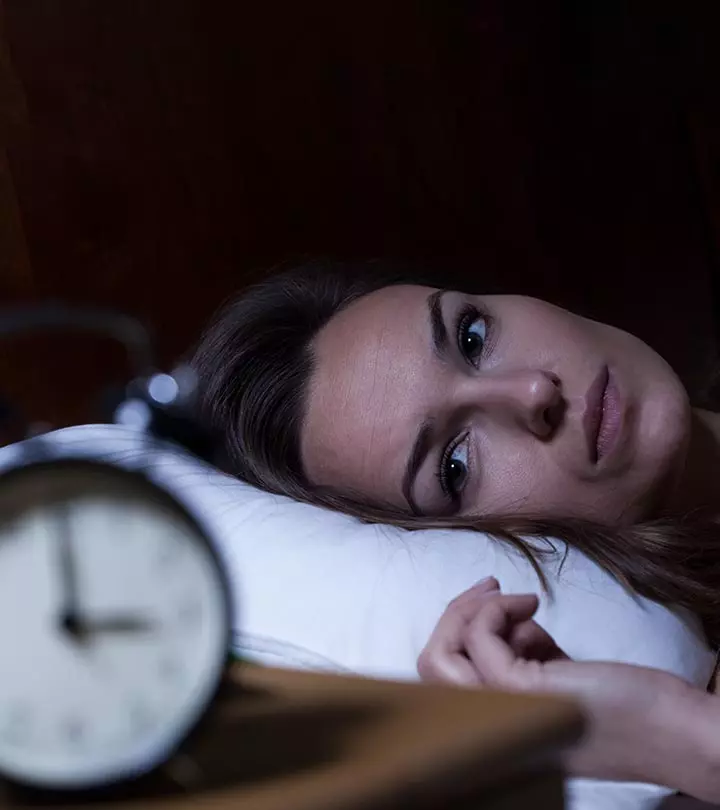
Image: ShutterStock
A good night’s sleep is essential for excellent physical and mental wellbeing. Unfortunately, insomnia is a severe ailment that can completely disrupt your life. Thus, you may want to check out some home remedies for insomnia, as sleep deprivation can have unimaginable consequences on your mind, body, and general health. Instead of purchasing over-the-counter sleeping drugs, consider using natural remedies. They are not habit-forming and do not possess the risk of side effects from pharmaceutical drugs.
Natural remedies are often gentler on the body. They can also address underlying issues contributing to insomnia, promoting holistic health. But before you try any of the remedies that we discuss here, you must know how to distinguish insomnia from a few days of poor sleep. Read on to know all about insomnia, its forms and causes, and some home remedies to help with it. Scroll down!
 Did You Know?
Did You Know?In This Article
What Is Insomnia?
Insomnia is termed as the inability to fall asleep and/or stay asleep.
This sleep disorder can be either short term or long term. Irritability, fatigue, poor concentration, and headache are some of the debilitating effects of insomnia.
Types Of Insomnia
Depending on the period for which one is affected with insomnia, it is classified into acute insomnia and chronic insomnia.
Acute Vs. Chronic Insomnia
Short-term insomnia is called acute insomnia.
It lasts for from a few days to up to a few weeks. When insomnia lasts for a month or longer, it is called chronic insomnia.
Key Takeaways
- Some of the causes of insomnia include medications, neurological and sleep disorders, or even menopause.
- Tryptophan in milk acts as a calming agent that helps induce sleep and treat insomnia.
- Essential oils, such as lavender, coconut, castor, black seed, fish, and rosewood, help treat insomnia.
- Apigenin in chamomile tea reacts with brain receptors to provide a relaxant effect and may help you get sound sleep. Green and rooibos teas also help treat insomnia for their sleep-inducing effects.

What Causes Insomnia?
Acute insomnia usually results from stress due to family or work or when one has suffered trauma (2). Chronic insomnia, on the other hand, is usually caused as a side effect of other problems. Hence, it is also called secondary insomnia. The causes are as listed below:
- Medications such as those for asthma, cold, and allergies
- Neurological disorders such as Alzheimer’si A neurodegenerative disease that causes cells in the brain to shrink and impairs memory and other important mental functions. and Parkinson’s diseasei A progressive disorder that affects the central nervous system and causes unintended and uncontrollable movements like tremors.
- Sleep disorders like restless legs syndrome and breathing-related ailments like sleep apnea
- Problems that involve chronic pain like arthritis
- Overactive thyroid gland
- Health issues that cause breathing problems like asthma
- Menopause
- Excessive caffeine, tobacco, alcohol, or related substances (3)
A survey conducted online with 50,054 students revealed that the prevalence of insomnia among females ranged from 61.3% for comorbid depression to 83.3% for comorbid schizophrenia. For males, the prevalence of insomnia ranged from 32.3% for autism to Asperger’s syndrome and 74.2% for an eating disorder. This demonstrates the close relationship between psychological or emotional disorders and insomnia.
 Did You Know?
Did You Know?Read on to know about the remedies that can give you relief from insomnia and help you sleep better.
Natural Sleep Aids For Insomnia
1. Foods For Insomnia
(a) Kiwi Fruit
(b) Banana
(c) Honey
(d) Milk
2.Best Oils For Insomnia
(a) Lavender
(b) Coconut Oil
(c) Castor Oil
(d) Black Seed Oil
(e) Fish Oil
(f) Rosewood Oil
3. Best Juice For Insomnia – Tart Cherry Juice
4. Best Herbs For Insomnia
(a) Valerian
(b) Garlic
(c) Jujube
5.Best Teas For Insomnia
(a) Chamomile Tea
(b) Green Tea
(c) Rooibos Tea
6. Lemon Balm
7. Vitamins For Insomnia
8. Exercise, Yoga, And Meditation
Here Are The Top 8 Home Remedies For Insomnia
1. Foods For Insomnia
(a) Kiwi Fruit For Insomnia
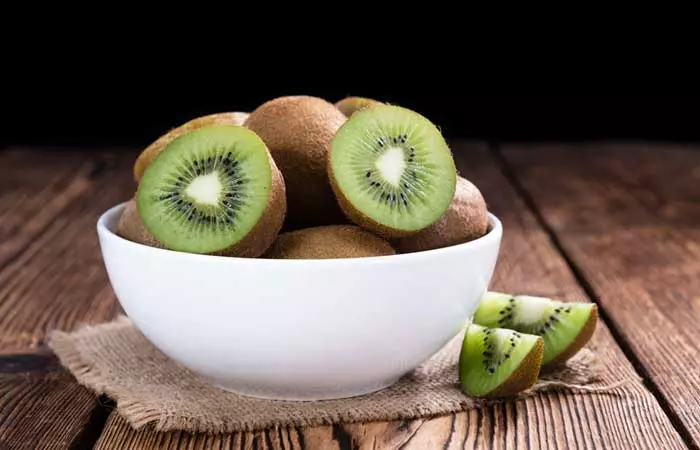
You Will Need
2 kiwis
What You Have To Do
Eat two fresh kiwi fruits one hour before going to bed.
How Often You Should Do This
Continue this every night. You will start noticing results in a few weeks.
Why This Works
Kiwis are rich in antioxidants, which alleviate the oxidative stress on the brain that may be causing insomnia.
Also, kiwis contain serotonin that helps relax the mind (5).
(b) Banana For Insomnia
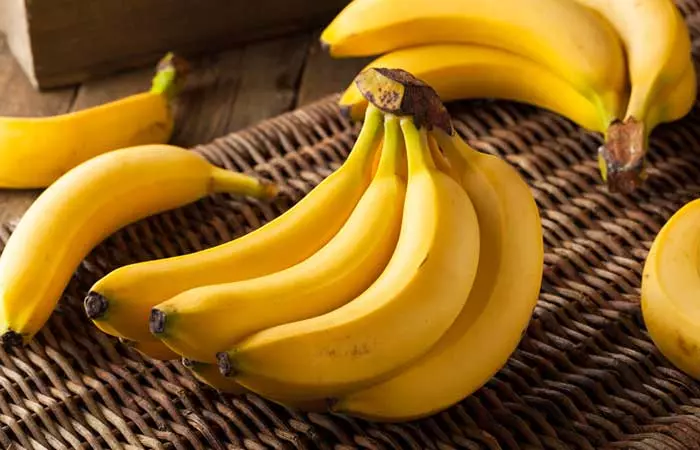
You Will Need
- 1 banana
- 1-2 cups of water
- Cinnamon powder (optional)
What You Have To Do
1. Cut the ends of the banana and boil it in the water for about 10 minutes.
2. Strain the water into a cup and add a pinch of cinnamon powder.
3. Drink this while it is warm.
You can also consume a ripe banana before going to bed.
How Often You Should Do This
Do this every time you feel difficulty in falling asleep.
Why This Works
Banana and its peel are rich in potassium, magnesium, tryptophani An essential amino acid important for protein biosynthesis that is naturally found in milk, banana, and eggs, among other foods. , and vitamins.
These essential nutrients regulate the functioning of the brain and the body. They also generate optimum levels of hormones like melatonin and serotonin, thus relaxing the brain and inducing sleep (6), (7), (8).
(c) Honey For Insomnia
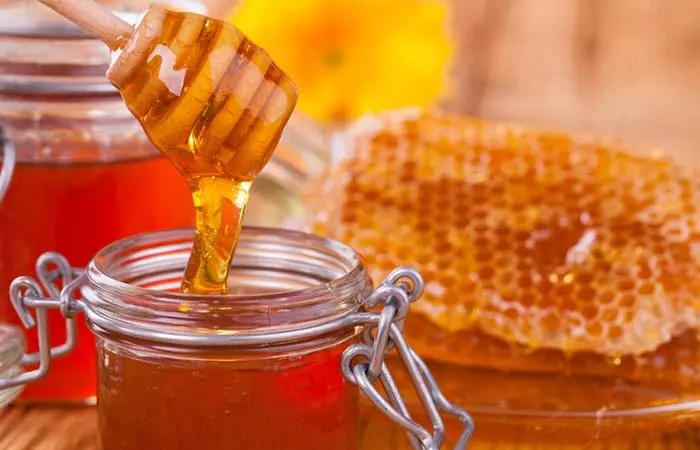
You Will Need
1-2 tablespoons honey
What You Have To Do
Have honey before going to bed. You can also add a pinch of Himalayan salt to wake up feeling fresh and energetic.
How Often You Should Do This
Do this every night before going to bed.
Why This Works
Having honey before going to sleep supplies the liver with enough glycogen that it can utilize over the night.
When the glycogen levels in the body go down, stress hormones (cortisol) are produced. These disturb your sleep and lead to insomnia. This can be easily controlled by having honey every night. Also, honey is full of antioxidants that reduce the oxidative stress within the body (9).
(d) Milk For Insomnia
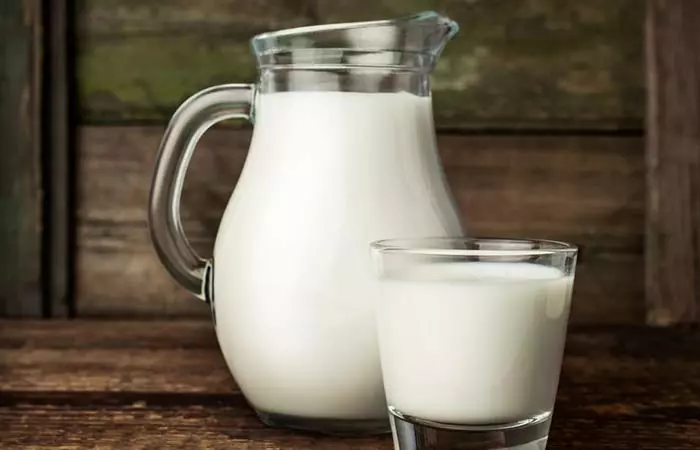
You Will Need
A glass of milk
What You Have To Do
Lightly warm up the milk and drink it 10-15 minutes before going to bed.
How Often You Should Do This
Do this every night.
Why This Works
Milk contains tryptophan, which is a calming agent and can help in inducing sleep (5).
2. Best Oils For Insomnia
(a) Lavender For Insomnia
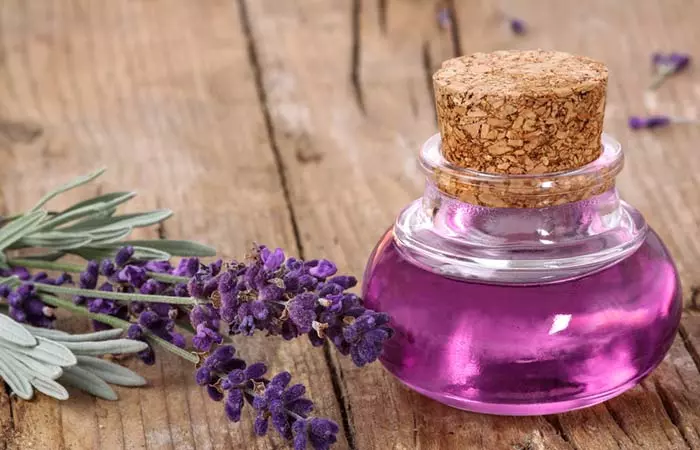
You Will Need
1-2 drops lavender oil or lavender sachet
What You Have To Do
Place the lavender oil drops on the pillow or keep the sachet under your pillow every night.
How Often You Should Do This
Repeat this every night.
Why This Works
Lavender has a pleasant aroma that most of us love. It is mildly sedative and also a mood stabilizer. Its neuroprotective properties reduce anxiety and help you sleep better (10).
(b) Coconut Oil For Insomnia
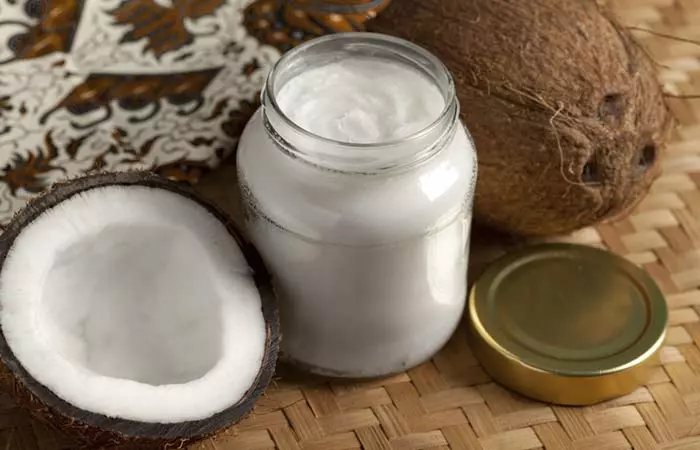
You Will Need
- 1 tablespoon coconut oil
- 1 teaspoon honey
- A pinch of sea salt
What You Have To Do
1. Mix the oil, honey, and salt.
2. Consume this before going to bed.
How Often You Should Do This
Repeat this every night for sound sleep.
Why This Works
Coconut oil is rich in medium-chain fatty acids that supply the body with optimum energy. It also helps in regulating hormonal production, which in turn regulates the sleep cycle (11).
(c) Castor Oil For Insomnia
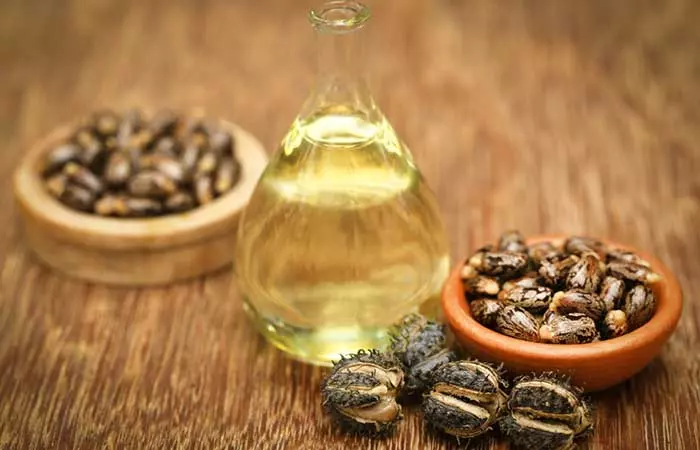
You Will Need
1-2 drops castor oil
What You Have To Do
Just dab a drop of the oil on your eyelids and rub it in. Be careful not to get any oil into your eyes.
How Often You Should Do This
Do this before going to bed every night.
Why This Works
This is one of those remedies that have been passed down for generations. Castor oil has been shown to induce long hours of sleep, even though its exact mechanism of action is still not known.
(d) Black Seed Oil For Insomnia
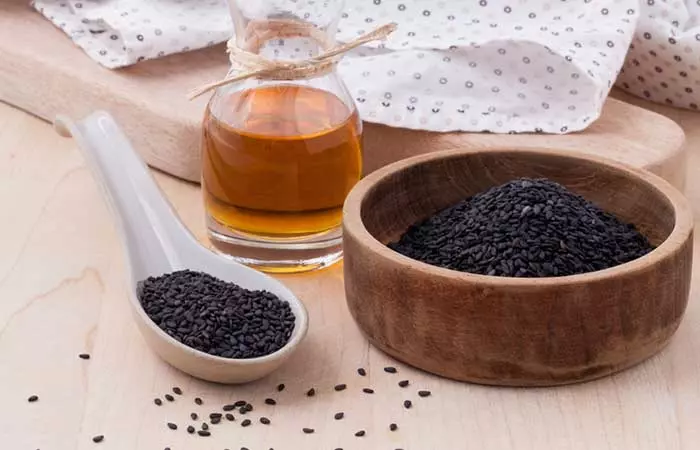
You Will Need
- 1 teaspoon black seed oil
- A glass of lukewarm water
What You Have To Do
Ingest the oil and immediately drink lukewarm water.
How Often You Should Do This
Do this every night before going to bed for at least three to four weeks to notice results.
Why This Works
Black seed oil increases the tryptophan levels in the brain. This is required for the synthesis of serotonin and melatonin – the hormones that regulate sleep (12).
(e) Fish Oil For Insomnia
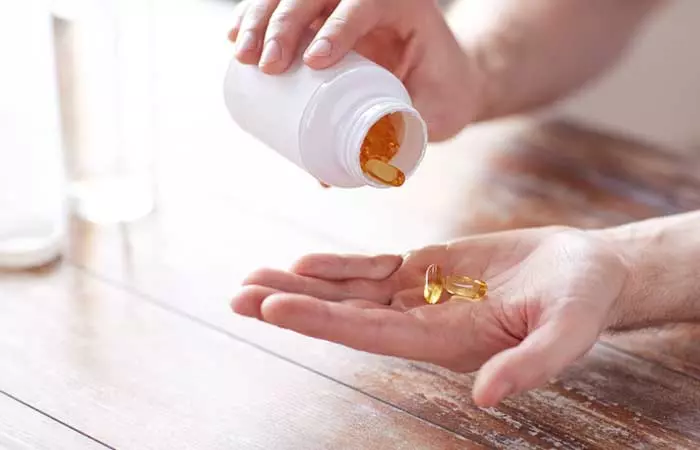
You Will Need
Fish oil capsules
What You Have To Do
Have a capsule once during the day with food.
How Often You Should Do This
Include fish oil capsules in your daily dietary intake.
Why This Works
Fish oil contains omega-3 fatty acids. DHA, a type of omega-3 fatty acid, helps in the release of melatonin in the brain (13). Thus, including fish oil in your diet as a supplement or in the form of seafood can help to treat your insomnia.
(f) Rosewood Oil For Insomnia

You Will Need
- A few drops of rosewood oil
- Oil diffuser
What You Have To Do
1. Add the essential oil to the oil compartment of the diffuser and let the vapors spread around the house.
2. Go to bed as usual.
How Often You Should Do This
Use this aromatherapy remedy as and when required.
Why This Works
This oil is derived from the rosewood tree, which is native to South America. It is a mild sedative and helps to induce sleep (14).
(g) Cannabidiol For Insomnia
You Will Need
- Cannabidiol (CBD) products such as CBD oil or CBD capsules
What You Have To Do
- Take the recommended dosage specified on the product label. You can either place the drops under your tongue or swallow the capsules.
How Often You Should Do This
Do this before bedtime.
Why This Works
Cannabidiol (CBD) is believed to have potential benefits for insomnia (15 ). A study found that patients given CBD capsules for 15 weeks showed greater improvement in sleep quality and disturbance (16 ) Another study found that cannabidiol may improve the ability to fall asleep (17). Further, CBD may help reduce anxiety and improve sleep quality, which maycan help those struggling with insomnia (18).
3. Best Juice For Insomnia – Tart Cherry Juice
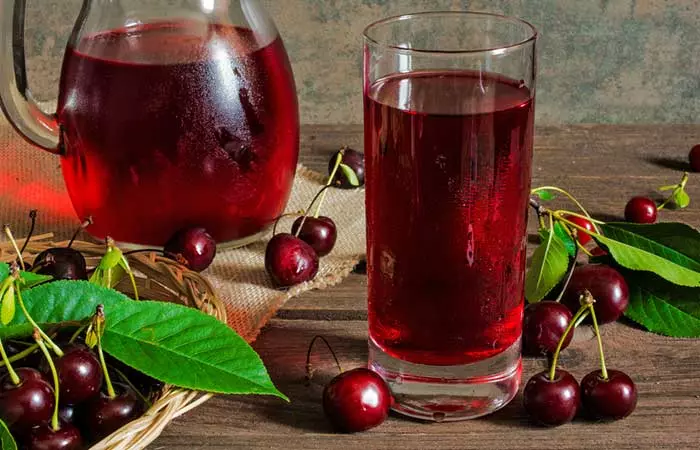
You Will Need
Tart cherry juice
What You Have To Do
Drink eight ounces of tart cherry juice twice a day.
How Often You Should Do This
Continue drinking this juice every day.
Why This Works
Tart cherry juice contains high levels of anthocyanins (antioxidants) and anti-inflammatory substances. Apart from these, it also contains high levels of melatonin. Thus, it helps in regulating the sleep cycle. Scientists showed that sleep disorder patients slept almost 90 minutes more when they drank tart cherry juice (19).
4. Best Herbs For Insomnia
(a) Valerian For Insomnia
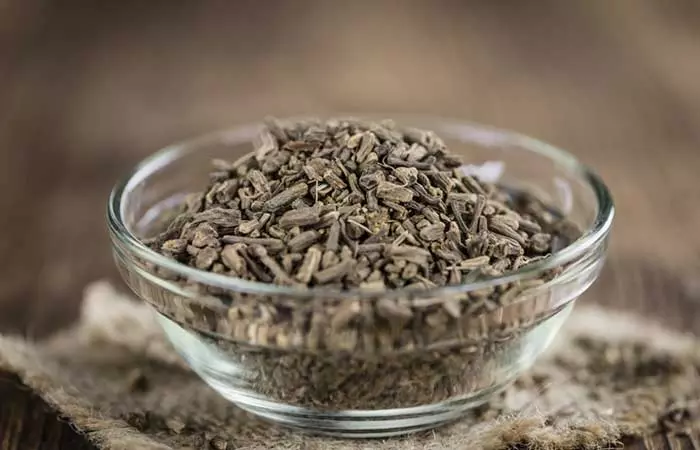
You Will Need
- 1 teaspoon dried valerian root
- A cup of hot water
What You Have To Do
1. Steep the dried root in the water for five to 10 minutes.
2. Strain and drink this herbal tea two hours before going to bed.
How Often You Should Do This
You can drink this tea every evening/night.
Why This Works
This mild sedative will reduce the time it takes for you to fall asleep. It also helps you sleep for a longer time. It works by increasing the amount of a chemical called GABAi Called gamma-aminobutyric acid, an inhibitory neurotransmitter that blocks the impulses from the brain to nerves to reduce stress. in the brain that exerts a calming effect on the nerves (20).
Caution: Valerian root can cause vivid dreams and nightmares in some people. Hence, consult your physician before trying it.
(b) Garlic For Insomnia
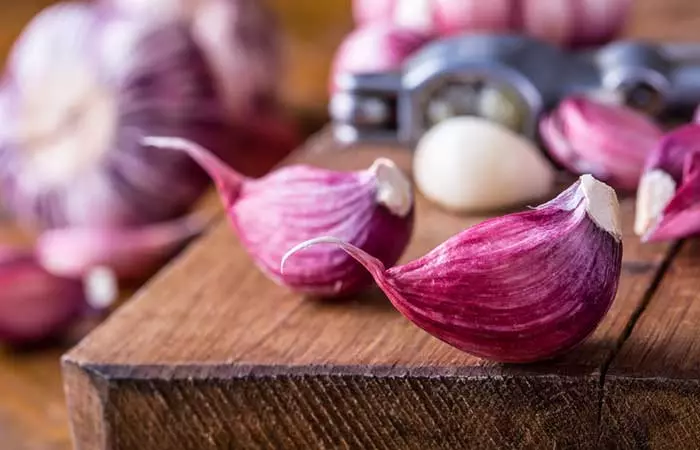
You Will Need
- 1 cup milk
- A clove of garlic
- ¼ cup water
What You Have To Do
1. Chop the garlic and add it to the milk.
2. Add water to this and boil until a cup of garlic milk remains.
3. Drink this warm milk a couple of minutes before hitting the bed.
How Often You Should Do This
Drink this every night.
Why This Works
The antioxidant and antimicrobial properties of garlic keep the body fluids and organs healthy and infection-free. It also aids in the healthy functioning of the heart and brain, thus regulating the sleep cycle (21).
(c) Jujube For Insomnia
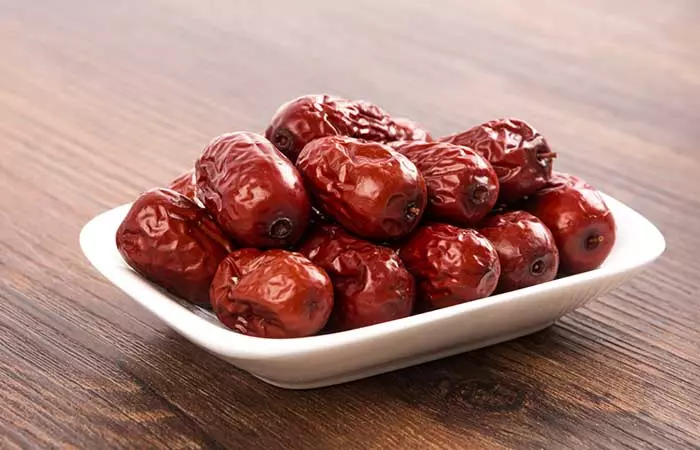
You Will Need
- Handful of jujubes (Chinese dates)
- 2-3 cups of water
What You Have To Do
1. Boil the dates in water for about 10 minutes and strain the decoction.
2. Drink a cup of this either hot or cold. You can store the rest in the refrigerator.
How Often You Should Do This
Drink a cup or two of jujube tea in a day.
Why This Works
The seed of the spiny zizyphs plant, jujube has been used in Ancient Chinese herbal medicine for the treatment of sleep-related disorders. It is a mild sedative that affects the hippocampus part of the brain and acts as a natural sleep aid (22), (23).
5. Best Teas For Insomnia
(a) Chamomile Tea For Insomnia
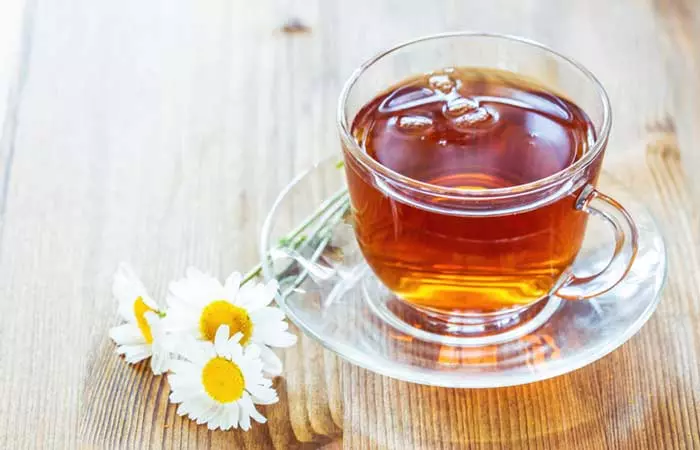
You Will Need
- 2-3 tablespoons of chamomile flowers
- 8 ounces of hot water
What You Have To Do
1. Take the flowers in a pot or large cup and add the water.
2. Let the herb soak in the water for about 10 minutes.
3. Strain and drink a cup of this beneficial herbal tea.
How Often You Should Do This
Have up to two cups of chamomile tea in a day.
Why This Works
This herbal tea is often nicknamed the ‘sleep tea’. Among the multiple flavonoidsi A class of natural compounds found in plants that possess anti-inflammatory and antioxidant properties. found in chamomile tea, apigenin binds to certain receptors in the brain and causes a relaxant effect (24). You can also add passionflower or hop extract to aid in nocturnal sleep due to their sedative properties.
(b) Green Tea For Insomnia
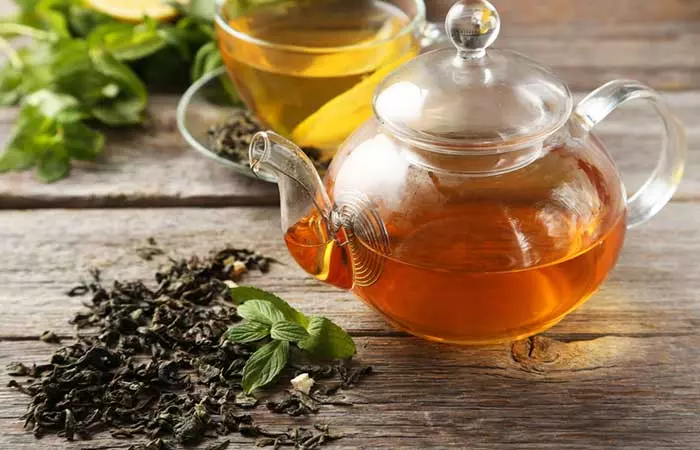
You Will Need
- 1-2 tablespoons green tea leaves (decaffeinated)
- A cup of hot water
- Honey (optional)
What You Have To Do
1. Steep the green tea leaves for a couple of minutes.
2. Strain the decoction and add a dash of honey for flavor.
3. Sip the tea while it is warm.
How Often You Should Do This
Drink a cup of green tea before going to bed.
Why This Works
Green tea is an excellent remedy for sleeplessness. It contains the amino acid L-theanine, which is a good sleep inducer (25).
(c) Rooibos Tea For Insomnia
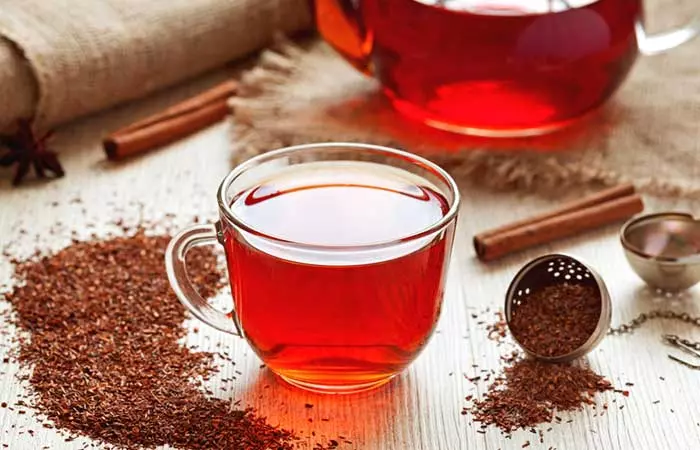
You Will Need
- 1-1½ teaspoons of rooibos tea
- A cup of boiling water
- Milk (optional)
- Sugar or honey (optional)
What You Have To Do
- Steep the tea in hot water for five to 10 minutes.
- Strain and add milk and sugar or honey as per your taste. This is not compulsory as you can drink the decoction as it is.
- Drink warm tea and enjoy its wonderful taste.
How Often You Should Do This
Brew a cup of rooibos tea and have it whenever you have trouble falling asleep.
Why This Works
Rooibos tea is commonly used across the globe for insomnia. It has high antioxidant content and no caffeine. It reduces stress and exerts a relaxing and calming effect (26).
6. Lemon Balm For Insomnia
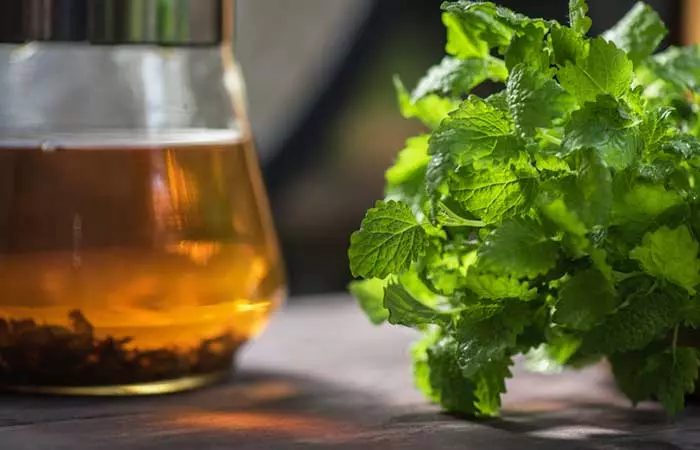
You Will Need
- ½ – 2 teaspoons of dried lemon balm leaves
- A cup of hot water
What You Have To Do
1. Steep the lemon balm leaves in the water for five minutes.
2. Strain and drink this tea.
How Often You Should Do This
You can drink two to three cups of this tea daily. Preferably, have a cup an hour or so before going to bed.
Why This Works
Like valerian, lemon balm contains compounds that have calming properties. Its mild sedative nature improves the quality and quantity of sleep (27).
7. Vitamins For Insomnia

Certain vitamins are essential to maintain a healthy sleep-wake cycle. In their absence or when their levels drop in the body, it can lead to insomnia. Here is the list of vitamins that are associated with insomnia symptoms:
- Vitamins B3, B5, B9, and B12 deficiencies have been linked to insomnia in the past. Weakness, fatigue, and sleeplessness are commonly seen (28). Include foods rich in these vitamins such as eggs, poultry, dairy products, etc. in your diet.
- Vitamin A also plays a key role in the healthy functioning of the brain, especially when it comes to sleep and memory (29). Foods with ample vitamin A content are meat, eggs, poultry, and dairy products.
- Vitamins C and E are powerful antioxidants and prevent oxidative stress from hindering your sleep cycle (28). Eat plenty of citrus fruits, strawberries, tomato, nuts, olives, wheat germ, and other foods rich in vitamins C and E for sound sleep.
- Another vitamin that can help you sleep better is vitamin D. Its main function is the growth and maintenance of healthy bones. Its deficiency can cause sleeplessness and chronic fatigue (30). Soak in the sun and consume vitamin D-rich foods like fish and oysters.
- Magnesium deficiency can also trigger insomnia. Magnesium helps maintain the levels of GABA, a neurotransmitter that promotes sleep. Research has shown that supplementation of magnesium can improve insomnia in the elderly (31). Consume magnesium-rich foods like leafy greens, pumpkin seeds, legumes, and nuts.
Apart from changes in your diet, you can also opt for vitamin supplements that will supply your body with the right amount of these vitamins. Do consult your doctor if you are unsure about the dosage.
8. Exercise, Yoga, And Meditation
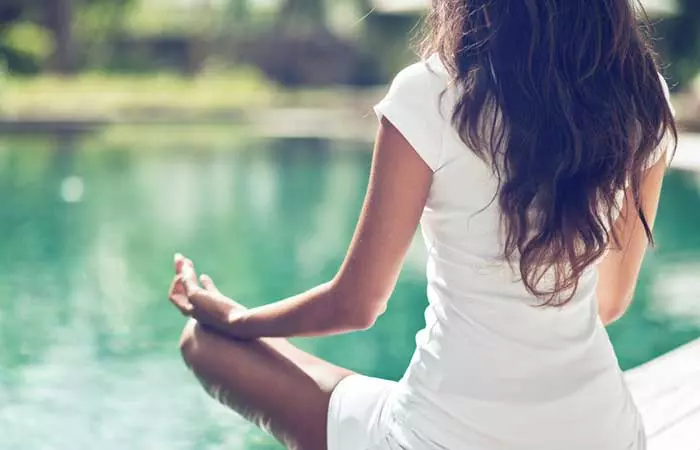
Yoga and meditation are both phenomenal for sleep. They both upregulate the parasympathetic nervous system, which is responsible for “rest and digest.” Exercising in the morning is great for sleep as well because it would make you tired by the end of the day.
Having a sound sleep has an effect on the individual’s mood to exercise the next day (32). You can also opt for gentle yoga, meditation, and chanting. These are age-old techniques for getting better sleep as they align the chakras and soothe your mind. Take a look at our article on Yoga Poses To Cure Insomnia for six wonderful asanas that can become lifesavers for your sleepless nights.
If doing yoga and meditation is not your cup of tea, simply chant a resounding‘OM’ or just concentrate solely on your breathing until you drift into a deep slumber.
Amanda Jayne O’Hare, a blogger, shared her experience of managing severe insomnia in her blog. She wrote, “ I kept my blackout blinds. So I started to live in spite of my severe, punishing lack of sleep and I started to get my life back; enjoyment back, and the sleep hinted it returns too (i).”
Note: Sleep apnea is a sleeping disorder closely linked to insomnia. In this condition, an individual experiences repeated episodes of interrupted breathing during sleep which jolts them awake. This can lead to or worsen insomnia as it is difficult to maintain restful sleep this way. Further, insomnia can worsen sleep apnea due to increased anxiety that affects breathing during sleep. If you are experiencing them simultaneously, learn more about home remedies for sleep apnea to find tailored solutions for your condition.
Infographic: Complications Of Insomnia
Sleep is just as crucial as a balanced diet and regular exercise. Whatever the cause, insomnia can impact your mental and physical health. Compared to those who get enough sleep, those with insomnia report a lower quality of life. Check out the infographic below to find out more about how it can affect your life at various levels. Illustration: StyleCraze Design Team
Insomnia is the inability to fall or stay asleep, disrupting your health and life. It is classified into acute insomnia and chronic insomnia, depending on the duration of the condition. Stress and trauma are the causes of acute insomnia. On the other hand, chronic insomnia can be a side effect of medications for asthma, colds, allergies, neurological disorders such as Alzheimer’s and Parkinson’s disease, etc. Irritability, fatigue, poor concentration, and headache are some of the debilitating effects of insomnia. Different therapies and treatments like acupuncture, acupressure, reflexology, cognitive-behavioral therapy, and relaxing massages can also help in treating insomnia. While it may appear difficult to deal with, you can improve your sleep by using the above home remedies and relaxation practices such as yoga.
Frequently Asked Questions
What are the symptoms of insomnia?
Insomnia is mainly characterized by the inability to either fall asleep or stay asleep or both. You toss and turn throughout the night without a wink of sleep. And even if you do manage to fall asleep, you cannot stay asleep for long. You wake up and the same routine repeats. You wake up in the morning feeling absolutely unrested, tired, irritable, and even depressed.
What to avoid to prevent insomnia?
Need a good night’s sleep? Make sure you avoid the following:
- Do not touch any sources of caffeine at least four hours before bedtime. Caffeine is a sleep wrecker that is found in coffee, colas, and some medicines as well.
- Switch off cellphones, iPads, laptops, TV, or any other light emitting devices as these stimulate the mind and do not let you fall asleep.
- Stop smoking. Nicotine, like caffeine, is a natural stimulant and keeps you awake.
- Excessive amounts of alcohol can also disrupt your sleep cycle. Keep a tab on the amount of alcohol you consume.
- Eat lighter meals during the evenings and nights. A heavy meal can also hinder your ability to fall asleep.
- Also, reduce your sugar intake in the evenings to avoid the sugar-high activity of the brain.
Does oil pulling help to treat insomnia?
Oil pulling or oil swishing is known to give you healthier teeth and gums and also clear out your sinuses. It is said that it also helps in curing insomnia, but there aren’t any significant results to prove this. People have tried this home remedy, but there is no consistency in the effects it has had on their insomnia symptoms.
Can insomnia go away on its own?
Yes, insomnia may go away without any medical help. However, you may have to identify and change the habits or problems that disrupt your sleep.
Is insomnia a mental illness?
No, it’s not. However, mental stress and anxiety may lead to insomnia. It could be a symptom of these issues.
Is there a blood test for insomnia?
No, there is no specific test to diagnose insomnia.
How long will insomnia last?
Short-term insomnia may last for 1 to 2 weeks. However, chronic insomnia may last for months.
Can you recover from insomnia?
Yes, recognizing the root cause of insomnia, following the remedies mentioned above, and making lifestyle changes, like maintaining sleep hygiene which includes having a regular sleep schedule, sleeping in a clean, dark room on a comfortable bed, and removing all electronic devices from the room may help you recover from insomnia. You can also use white noise to mask any other background noise to help you sleep, although it’s not recommended to do so every night.
Do not let your mind and body suffer due to insomnia and its after effects. Use the above listed home remedies for insomnia or sleeplessness and do let us know how our article helped you. Share your feedback in the comments section below.
Illustration: Home Remedies For Insomnia That Will Help You Sleep Quickly
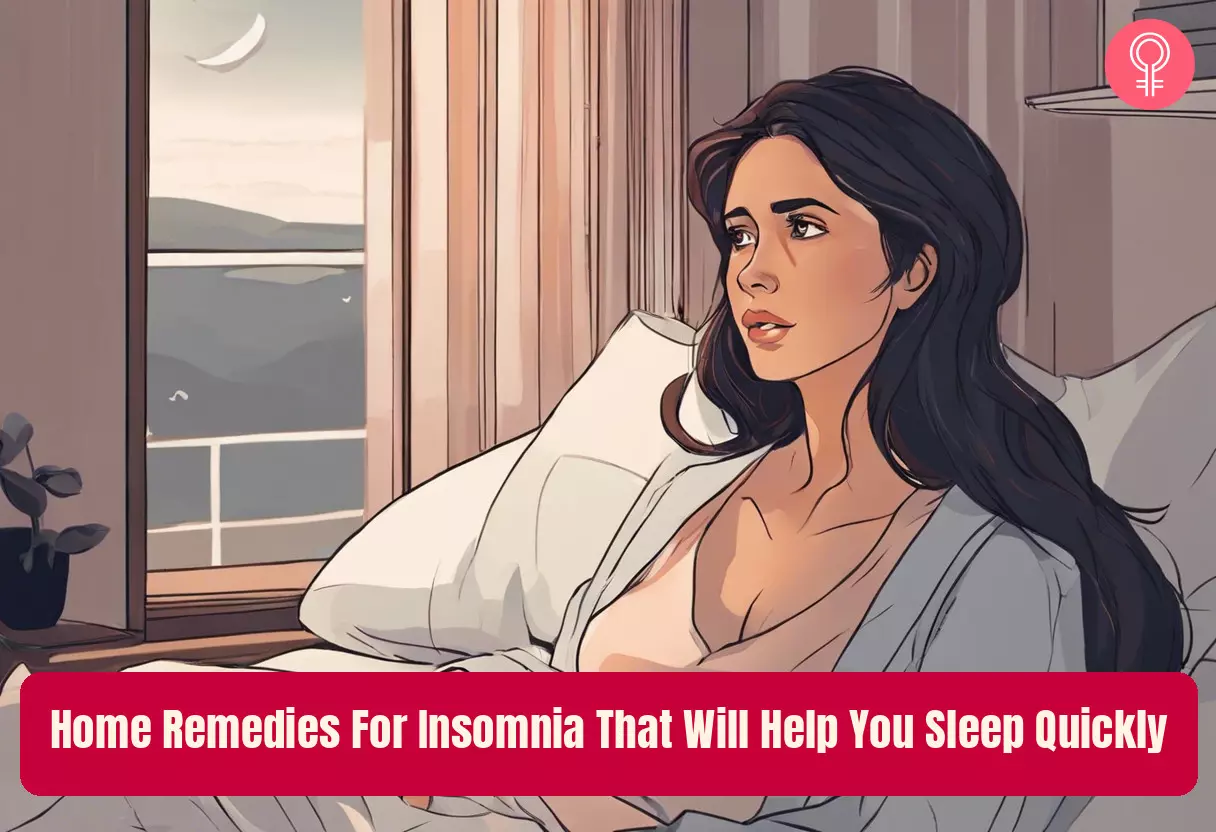
Image: Stable Diffusion/StyleCraze Design Team
Struggling with insomnia? Look no further! This insightful video presents four effective home remedies to tackle sleepless nights. Say goodbye to counting sheep and say hello to a well-deserved, peaceful slumber. Rest, recharge, and reclaim your nights!
Personal Experience: Source
StyleCraze's articles are interwoven with authentic personal narratives that provide depth and resonance to our content. Below are the sources of the personal accounts referenced in this article.
i. How I Cured My “Two Hours’ Sleep A Night” Insomniahttps://medium.com/the-ascent/how-i-cured-my-two-hours-sleep-a-night-insomnia-c014e70833f5
References
Articles on StyleCraze are backed by verified information from peer-reviewed and academic research papers, reputed organizations, research institutions, and medical associations to ensure accuracy and relevance. Read our editorial policy to learn more.
- Insomnia and the Performance of US Workers: Results from the America Insomnia Survey
https://www.ncbi.nlm.nih.gov/pmc/articles/PMC3157657/ - Insomnia: Definition Prevalence Etiology and Consequences
https://www.ncbi.nlm.nih.gov/pmc/articles/PMC1978319/ - Impact of lifestyle and technology developments on sleep
https://www.ncbi.nlm.nih.gov/pmc/articles/PMC3630968/ - Insomnia in Older Adults
https://www.ncbi.nlm.nih.gov/pmc/articles/PMC7731454/ - Effect of kiwifruit consumption on sleep quality in adults with sleep problems
https://pubmed.ncbi.nlm.nih.gov/21669584/ - The effect of banana dose and duration on the decrease of sleep disorders in the elderly
https://www.bibliomed.org/?mno=134020 - L-Tryptophan: Basic Metabolic Functions Behavioral Research and Therapeutic Indications
https://www.ncbi.nlm.nih.gov/pmc/articles/PMC2908021/ - Exogenous antioxidants—Double-edged swords in cellular redox state
https://www.ncbi.nlm.nih.gov/pmc/articles/PMC2952083/ - Medicinal and cosmetic uses of Bee’s Honey – A review
https://www.ncbi.nlm.nih.gov/pmc/articles/PMC3611628/ - Lavender and the Nervous System
https://www.ncbi.nlm.nih.gov/pmc/articles/PMC3612440/ - Cocos nucifera (L.) (Arecaceae): A phytochemical and pharmacological review
https://www.ncbi.nlm.nih.gov/pmc/articles/PMC4671521/ - Increased 5-HT Levels Following Repeated Administration of Nigella sativa L. (Black Seed) Oil Produce Antidepressant Effects in Rats
https://www.ncbi.nlm.nih.gov/pmc/articles/PMC3951226/ - Sleep Apnea and Inflammation – Getting a Good Night’s Sleep with Omega-3 Supplementation
https://www.ncbi.nlm.nih.gov/pmc/articles/PMC3848082/ - Rosewood oil induces sedation and inhibits compound action potential in rodents
https://pubmed.ncbi.nlm.nih.gov/19505550/ - The effects of cannabinoids on sleep
https://www.ncbi.nlm.nih.gov/pmc/articles/PMC9036386/ - Therapeutic Effects of Cannabis and Cannabinoids
https://www.ncbi.nlm.nih.gov/books/NBK425767/ - Use of Cannabidiol in the Management of Insomnia: A Systematic Review
https://www.researchgate.net/publication/363818910_Use_of_Cannabidiol_in_the_Management_of_Insomnia_A_Systematic_Review - Cannabidiol in Anxiety and Sleep: A Large Case Series
https://www.ncbi.nlm.nih.gov/pmc/articles/PMC6326553/ - Effects of a Tart Cherry Juice Beverage on the Sleep of Older Adults with Insomnia: A Pilot Study
https://www.ncbi.nlm.nih.gov/pmc/articles/PMC3133468/ - Valerian Root in Treating Sleep Problems and Associated Disorders—A Systematic Review and Meta-Analysis
https://www.ncbi.nlm.nih.gov/pmc/articles/PMC7585905/ - Garlic: a review of potential therapeutic effects
https://www.ncbi.nlm.nih.gov/pmc/articles/PMC4103721/ - Comparison of the sedative and hypnotic effects of flavonoids saponins and polysaccharides extracted from Semen Ziziphus jujube
https://pubmed.ncbi.nlm.nih.gov/17479419/ - The involvement of serotonin receptors in suanzaorentang-induced sleep alteration
https://pubmed.ncbi.nlm.nih.gov/17657585/ - Chamomile: A herbal medicine of the past with bright future
https://www.ncbi.nlm.nih.gov/pmc/articles/PMC2995283/ - Ingestion of green tea with lowered caffeine improves sleep quality of the elderly via suppression of stress
https://www.ncbi.nlm.nih.gov/pmc/articles/PMC5703787/ - Fact Sheet on Rooibos Tea
https://www.researchgate.net/publication/273090980_Fact_Sheet_on_Rooibos_Tea - The effects of Melissa officinalis supplementation on depression anxiety stress and sleep disorder in patients with chronic stable angina
https://pubmed.ncbi.nlm.nih.gov/29908682/ - Vitamins and Sleep: An Exploratory Study
https://www.ncbi.nlm.nih.gov/pmc/articles/PMC2174691/ - Vitamin A deficiency induces a decrease in EEG delta power during sleep in mice
https://pubmed.ncbi.nlm.nih.gov/17400199/ - The link between vitamin D metabolism and sleep medicine
https://pubmed.ncbi.nlm.nih.gov/24075129/ - The effect of magnesium supplementation on primary insomnia in elderly: A double-blind placebo-controlled clinical trial
https://pubmed.ncbi.nlm.nih.gov/23853635/ - Exercise to Improve Sleep in Insomnia: Exploration of the Bidirectional Effects
https://www.ncbi.nlm.nih.gov/pmc/articles/PMC3716674/
Read full bio of Dr. Lana Butner
Read full bio of Kushneet Kukreja
Read full bio of Arshiya Syeda
Read full bio of Dipti Sharma






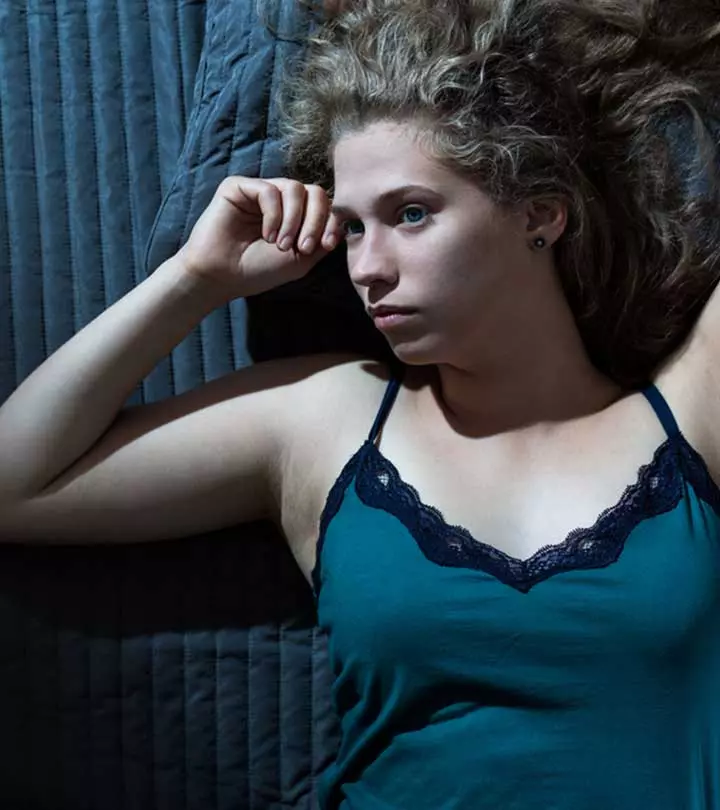

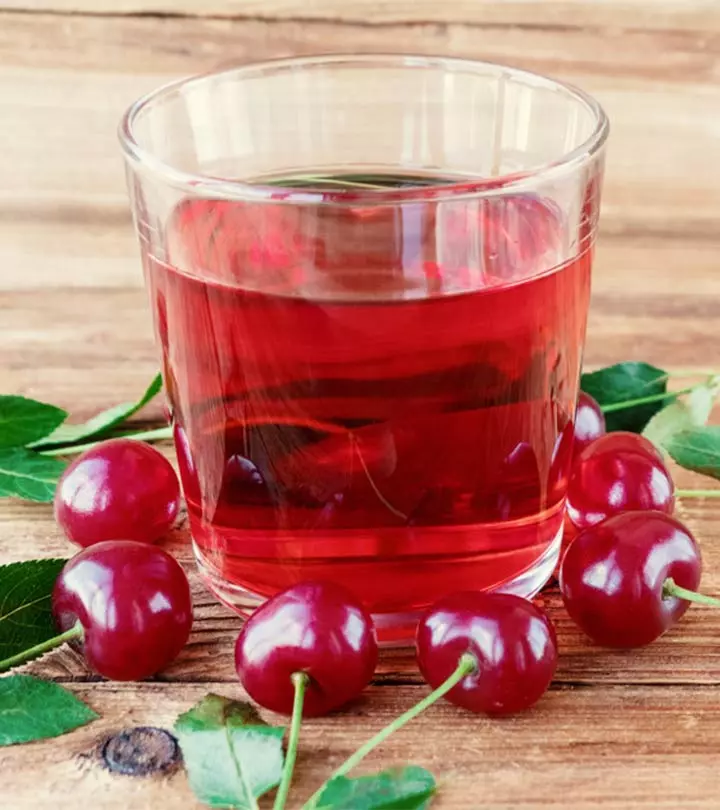
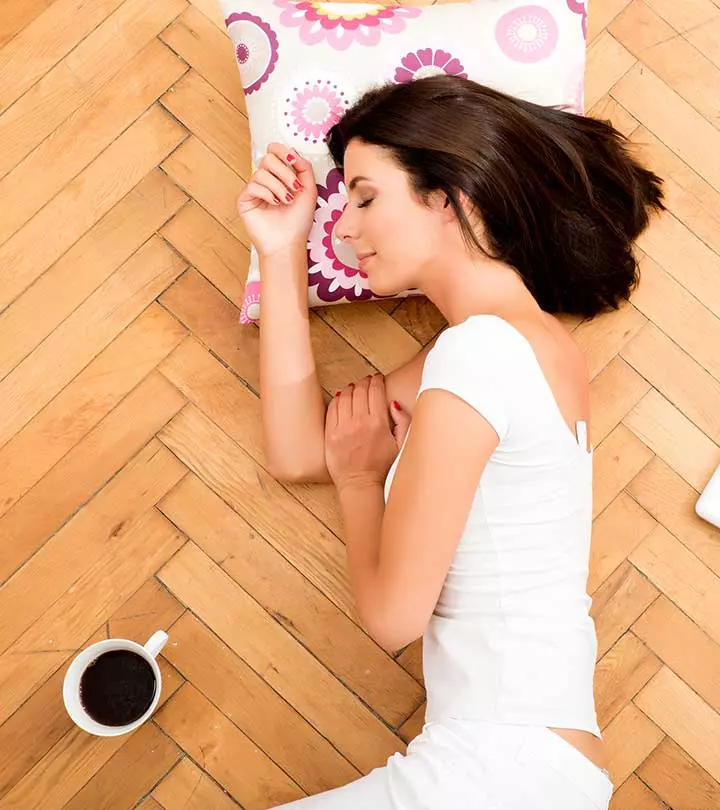
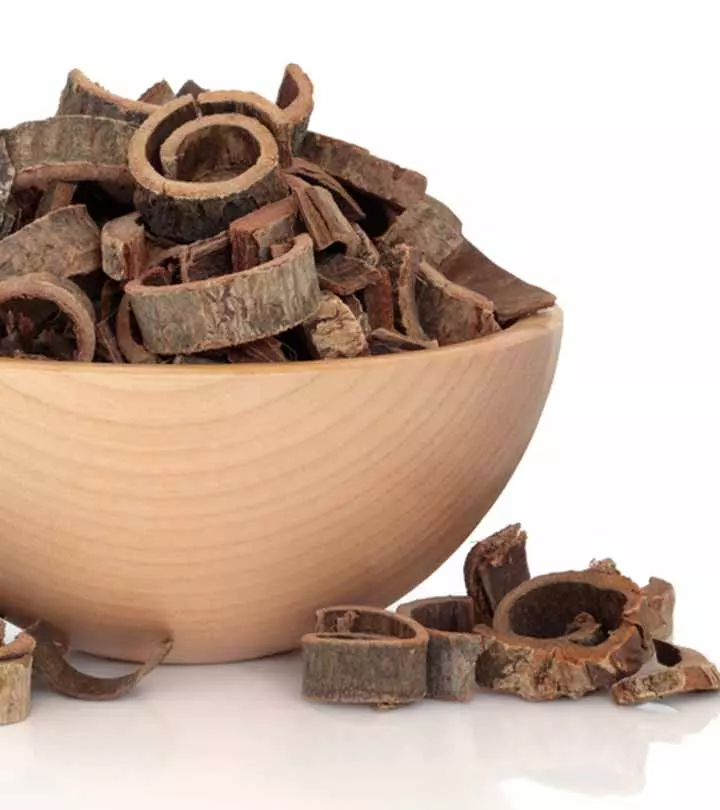
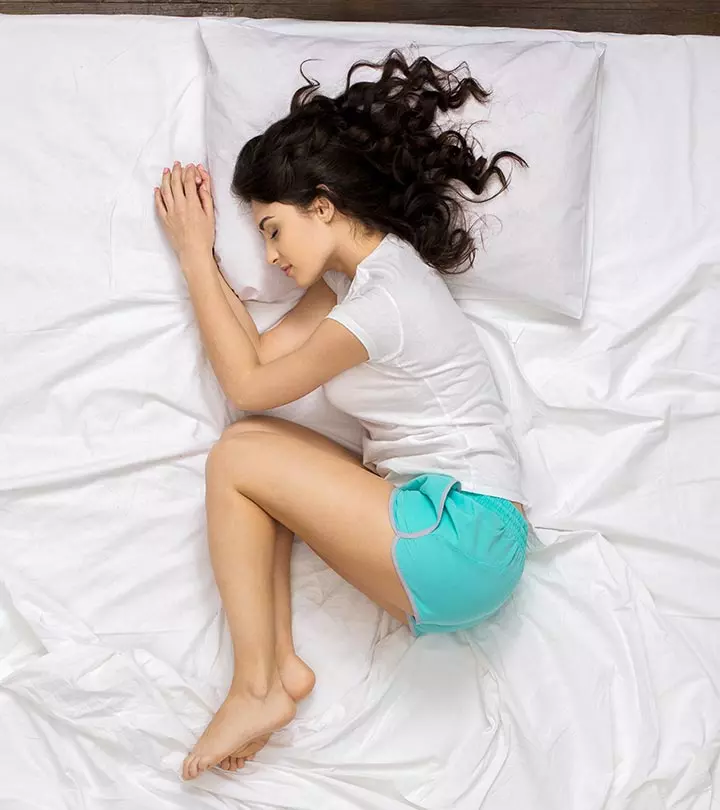
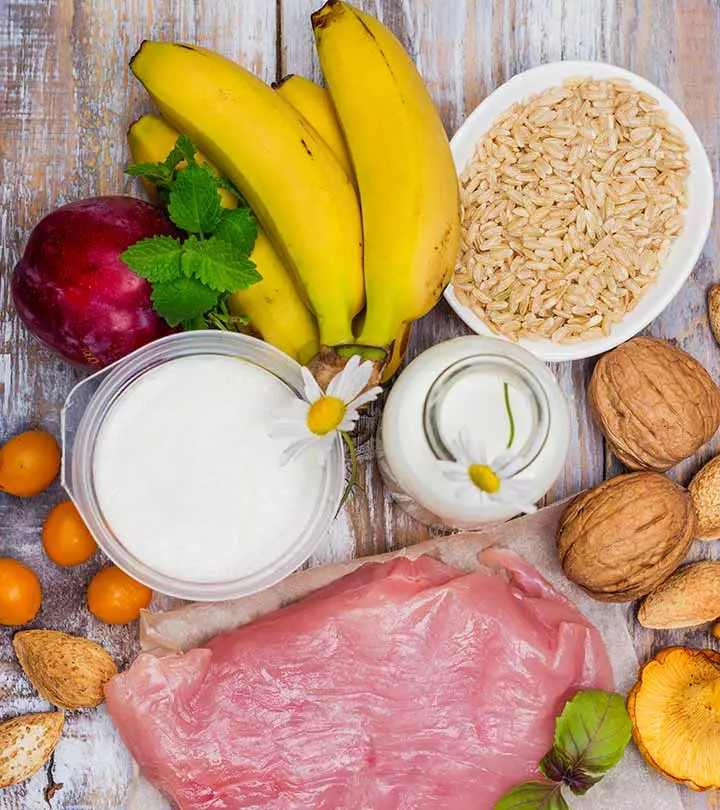

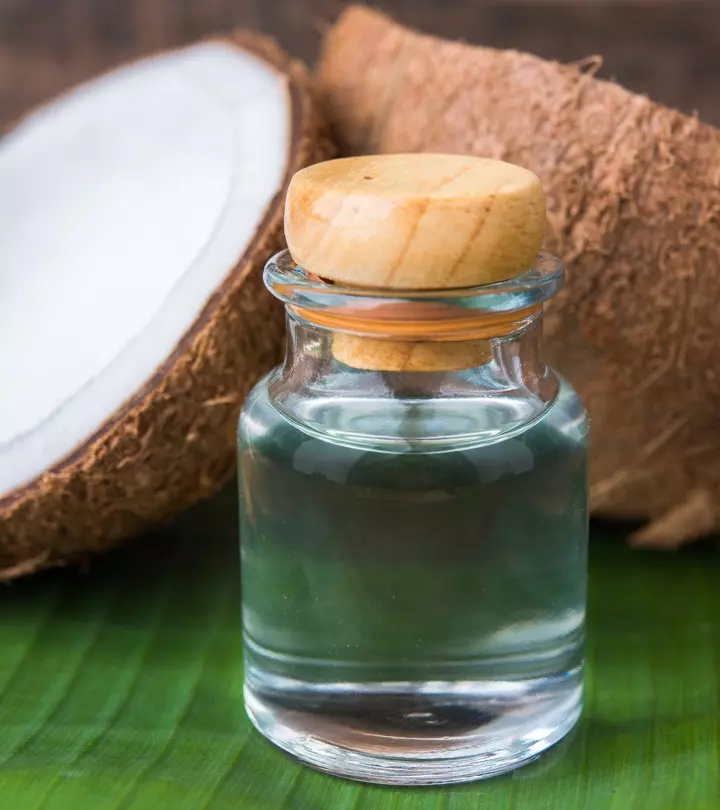


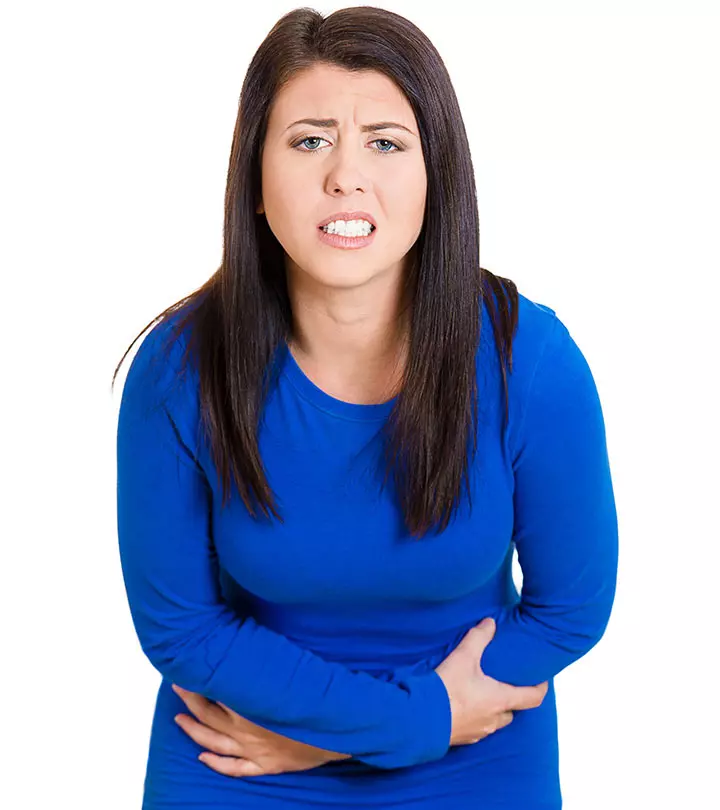
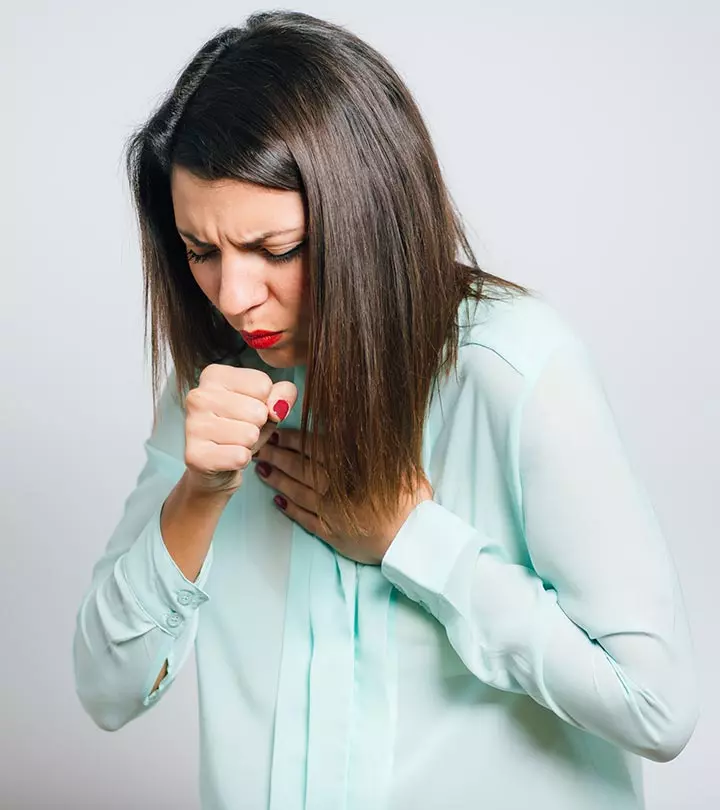

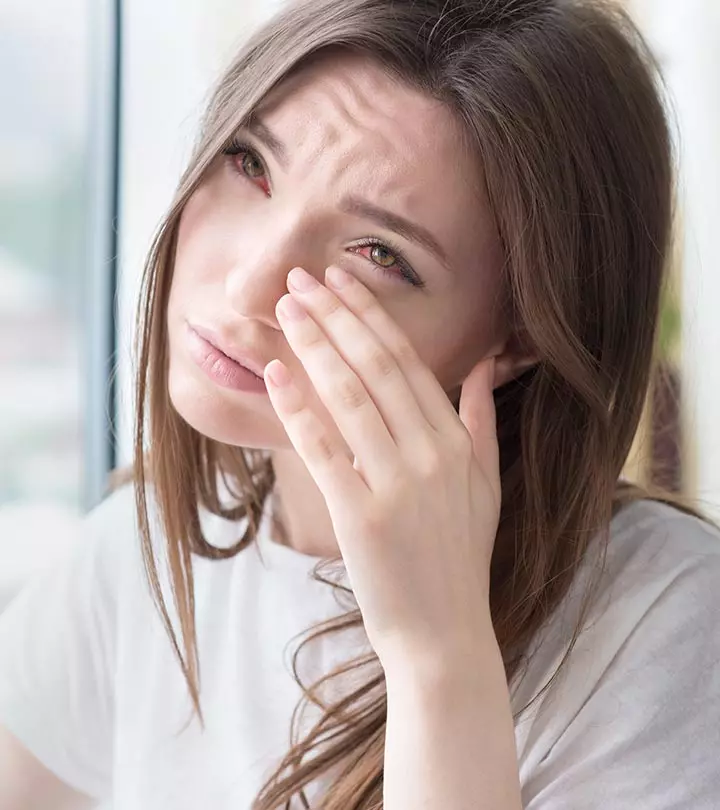



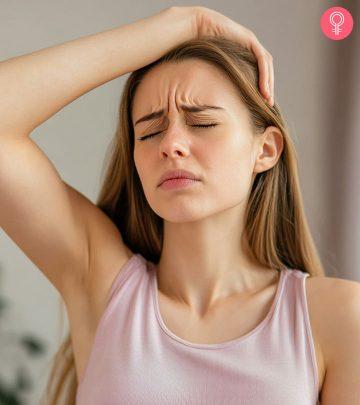
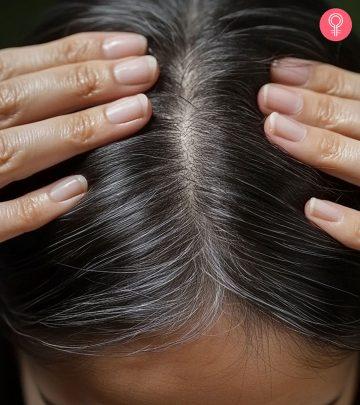
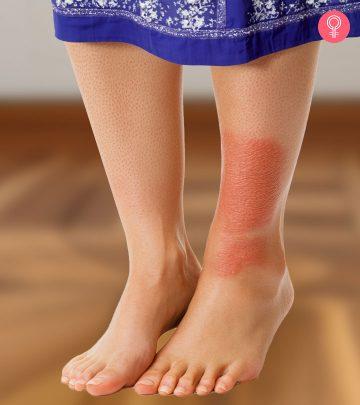
Community Experiences
Join the conversation and become a part of our empowering community! Share your stories, experiences, and insights to connect with other beauty, lifestyle, and health enthusiasts.